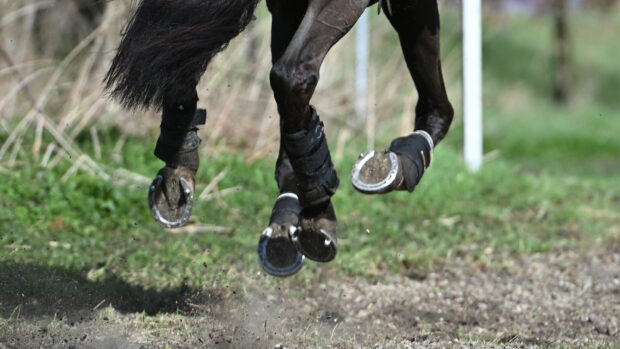As we are all aware, the UK is bracing itself before Storm Eunice hits, with red weather warnings in place – the highest level – for parts of south-west England and south Wales tomorrow (18 February), meaning there is a danger to life from flying debris. The Met Office warned Storm Eunice could bring gusts of up to 90mph, causing significant disruption. At the time of publication, the red warning is in place from 7am until midday on Friday. A lower amber warning for wind remains in place for the rest of Wales and most of England as far north as Manchester, from 5am until 9pm on Friday, with a yellow warning for snow and wind further north. So this begs the question; what should you do with your horses in extremely windy weather?
Horses can become very anxious in the wind. This is typically because their environment becomes louder, which affects their ability to hear for potential predators approaching, and obviously things flap and move around a lot more in blustery conditions, which may trigger their natural flight response.
Strong winds can increase a field-kept horse’s risk of bodily harm due to objects such as trees blowing down or branches being snapped off. Lightweight equipment and materials, such as empty water troughs, buckets and loose roofing material could spook your horses if the wind gets hold of them, and possibly cause injury, either through direct impacts or by scaring your horse into harm’s way.
Check your fencing is secure and that any electrified tape is not likely to become loose from its posts. If possible, it may be better to remove temporary electric fencing in extremely windy weather, rather than risk the tape and stakes becoming a hazard to your animals.
If your horse has access to a field shelter, or is stabled, check the structure is going to be able to withstand high winds, and undertaken any small repairs such as loose boards or doors that could be caught by the wind. Batten down any objects that could fly around and keep your trees pruned of deadwood. It is up to you to decide whether your horse is safer turned out or stabled, depending on which you assess to be the safest and to best suit your horse.
If your horse is turned out, ensure he is appropriately rugged as the wind chill created by strong gusts can sap heat from even thick winter coats. Rugs with rear leg straps, rather than just a fillet string, are more likely to prevent the rug from being displaced by the wind.
It is up to the individual to assess whether it is safe to ride their horse in windy conditions, depending on your horse and his normal behaviour in such conditions. However, it must be said that it is probably not advised to ride in extremely strong winds.
A number of competitions have been cancelled ahead of the storm and it’s expected the weather may cause roads and bridges to be closed, therefore driving horse lorries or towing trailers in the extreme conditions cannot be recommended.
- View the latest weather warnings for Friday 18 February
You might also like:

7 reasons (most) horse people hate windy weather

Subscribe to Horse & Hound magazine today – and enjoy unlimited website access all year round
Horse & Hound magazine, out every Thursday, is packed with all the latest news and reports, as well as interviews, specials, nostalgia, vet and training advice. Find how you can enjoy the magazine delivered to your door every week, plus options to upgrade your subscription to access our online service that brings you breaking news and reports as well as other benefits.




